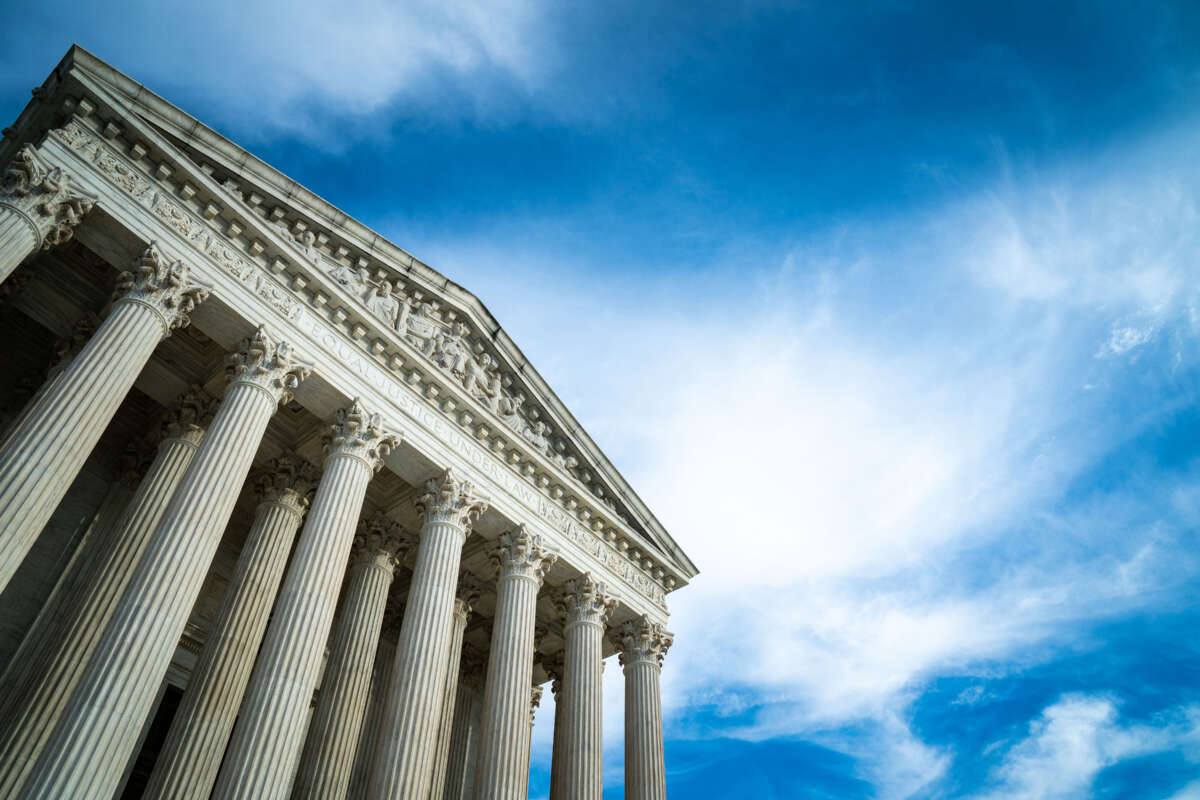In a decision that surprised legal experts across the country, the U.S. Supreme Court ruled 5-4 on Thursday against congressional maps drawn in Alabama, asserting that they were the product of racist gerrymandering.
Two conservative bloc justices — Chief Justice John Roberts and Justice Brett Kavanaugh — joined with all three liberal bloc members (Justices Elena Kagan, Sonia Sotomayor and Ketanji Brown Jackson) to form the majority opinion in the case. Roberts penned the opinion of the Court.
Because of the many restrictions to the Voting Rights Act (VRA) that were implemented over the past few Supreme Court terms, the case was expected to result in the law being further curtailed. Instead, however, the ruling produced a “step back from the brink of totally gutting” the 1965 statute, NPR reported.
The Court agreed with a lower appellate court’s ruling that found that Alabama officials had unfairly packed Black voters into one majority-Black district near the capital city of Montgomery, diluting Black residents’ voting power near that area by placing them in three other majority-white districts. Although Black Alabamans make up around 27 percent of the state’s population, with just one Black-majority district, the maps greatly diminished the ability of Black voters to select lawmakers.
Alabama officials contended that their maps were developed in a race-neutral way, and thus constitutional. Roberts and the majority, however, noted that Alabama was trying to create new benchmarks for drawing districts, thwarting precedent established by the Supreme Court in the 1980s.
“The heart of these cases is not about the law as it exists. It is about Alabama’s attempt to remake our…jurisprudence anew,” Roberts said in the majority opinion.
If the Court had adopted the “race-neutral benchmark,” Roberts wrote, it would fare “poorly” in practice, “which further counsels against our adopting it.”
The appellate court had initially ruled that a new map had to be drawn up, with a second majority-Black (or near-majority) district to be drawn within it. The Supreme Court affirmed that ruling, and as a result of the decision published on Thursday, a second district encompassing a majority of Black voters will be part of Alabama’s congressional delegation moving forward.
Even though he joined four other justices in opposing the gerrymandered districts, Roberts left open the possibility, in his opinion, of justices further diluting the VRA in the future, writing that the majority’s ruling doesn’t “diminish or disregard” his and other conservatives’ concerns that the law “may impermissibly elevate race in the allocation of political power within the States.”
But the map drawn by Alabama lawmakers was not a “faithful application of precedent,” Roberts added.
Elie Mystal, justice correspondent for The Nation, took note of Roberts’s words.
“Roberts flipped here because Alabama went too far,” Mystal wrote. “That Roberts has a ‘too far’ line on this issue IS surprising. But he’s not coming to Jesus or anything.”
The ruling has the potential to extend to two other cases — one in Louisiana and another in Georgia — in which Black voters have argued that they are deserving of additional majority or near-majority districts due to gerrymandered maps diluting their votes.
NAACP Legal Defense Fund director of litigation Deuel Ross, who argued the case before the Court last fall, celebrated the ruling, but recognized that more work is needed to secure true representation for voters in Alabama and elsewhere.
This decision is a crucial win against the continued onslaught of attacks on voting rights. Alabama attempted to rewrite federal law by saying race could not be considered in the redistricting process even when necessary to remedy racial discrimination. But because of the state’s sordid and well-documented pattern of persisting racial discrimination, race must be considered to ensure communities of color are not boxed out of the electoral process.
Tish Gotell Faulks, legal director for the ACLU of Alabama, also celebrated the ruling.
“The key takeaway from today’s decision is the court’s acknowledgment that the Alabama Legislature knowingly continued its legacy of drawing illegal voting districts that disenfranchise Black voters. The Alabama Legislature must now draw new, fairer voting districts,” Gotell Faulks said.
Press freedom is under attack
As Trump cracks down on political speech, independent media is increasingly necessary.
Truthout produces reporting you won’t see in the mainstream: journalism from the frontlines of global conflict, interviews with grassroots movement leaders, high-quality legal analysis and more.
Our work is possible thanks to reader support. Help Truthout catalyze change and social justice — make a tax-deductible monthly or one-time donation today.
